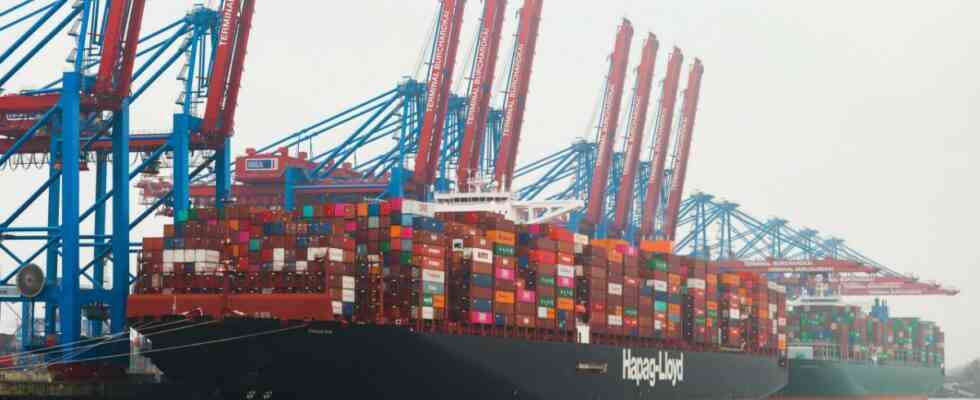According to forecasts by leading institutes, the German economy will be spared the feared slump caused by the energy crisis. In contrast to most other institutions, the Kiel-based Institute for the World Economy (IfW) is now even predicting growth for the coming year: the gross domestic product (GDP) will increase by 0.3 percent, according to the outlook published on Thursday. In September it had still expected a decline of 0.7 percent.
The Leibniz Institute for Economic Research (RWI), based in Essen, expects a mini minus of 0.1 percent, as does the Munich Ifo Institute. The Association of German Chambers of Industry and Commerce (DIHK) is even expecting a drop of three percent. “The German economy can breathe a sigh of relief, but nobody should sit back in view of the massive risks,” said IfW Vice President and Economics Director Stefan Kooths, who predicted growth of 1.9 for the year that was coming to an end and 1.3 for 2024 percent expected.
The reason for the improved prospects for 2023 is that energy prices for companies and consumers have risen less than expected – also as a result of government intervention by means of price brakes for gas and electricity. “This in itself strengthens private purchasing power,” said the IfW. In the course of the government relief packages, the inflation rate should fall noticeably in 2023, according to the Essen-based RWI Institute – to 5.8 percent, after 7.9 percent in the year that is coming to an end. A value of 2.5 percent is expected for 2024.
“The lower inflation rate in the coming year will be bought dearly through massive subsidies, which only superficially alleviate the energy crisis,” said IfW expert Kooths. “The aid is far too broad and has increased inflationary pressure elsewhere.” This is neither market- nor stability-oriented. The crisis cannot be bridged by permanent subsidies, but must be tackled at the root. This requires a new energy policy strategy that fundamentally strengthens the energy supply and does not constantly patch up the cracks with more and more debt.
The RWI also warns of dangers. “The greatest risk for Germany’s economic development is currently the inflationary trend,” said RWI Economic Director Torsten Schmidt. “The war against Ukraine also remains a significant risk factor.” Compared to the economic expectations of winter 2021 – i.e. before Russia launched a war of aggression against Ukraine – according to calculations by the IfW, economic output will fall by 180 billion euros in 2022 and 2023 alone. According to the forecasts, the labor market is proving to be robust, also because companies are still desperately looking for skilled workers. The government deficit is likely to increase to around four percent of GDP in the coming year due to the aid packages.

